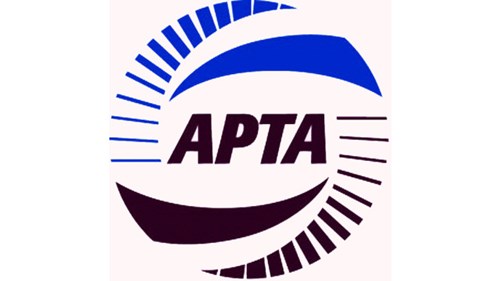
Decades of under investment in America’s aging bus and rail public transit infrastructure has a negative effect on business revenue, and results in lost jobs and wages, according to a new study from the American Public Transportation Association.
Failing to address America’s $90 billion backlog of public transit modernization needs, also referred to as State of Good Repair, results in a loss of $340 billion in business revenue to the U.S. economy over a six-year period. This is based on the study The Economic Cost of Failing to Modernize Public Transportation, which was conducted by the Economic Development Research Group Inc. for APTA. The study was released during National Infrastructure Week which is held May 14 – 18.
The authors of the report examined the public transportation modernization needs nationwide and performed in-depth case studies of six transit systems: Massachusetts Bay Transportation Authority (MBTA), Chicago Transit Authority (CTA), Metropolitan Atlanta Rapid Transit Authority (MARTA), Southeastern Pennsylvania Transportation Authority (SEPTA), San Francisco Municipal Transportation Agency (SFMTA), and Washington Metropolitan Area Transit Authority (WMATA). The report also examined modernization needs in bus and bus facilities which were applicable to systems like the Central Ohio Transit Authority (COTA).
“Our failure as a nation to address America’s public transit modernization needs has wide-ranging negative effects because lost time in travel makes a region’s economy less productive,” said APTA President and CEO Paul P. Skoutelas. “Congress has an opportunity in the current fiscal year 2019 Appropriations process to help address the nation’s aging public transit infrastructure.”
Modernization deficiencies in the nation’s public transit infrastructure result in a decrease of $180 billion in Gross National Product. This includes a loss of $109 billion in household income over six years and 162,000 jobs over the same time frame. The authors of the study note that failure to modernize the nation’s aging public transit infrastructure adds time and delays to commutes. This in turn slows down workers’ economic output which directly impacts business sales in a regional economy.
 In addition, the quality of businesses that locate in an area is tied to the efficiency of a transportation system, and this directly impacts workers’ earning potential. For example, officials at Amazon are searching for a second headquarters in North America. With the addition of this new $5 billion facility, Amazon will generate 50,000 high-paying jobs with yearly salaries of $100,000 or more. Amazon’s project summary describes the importance of an efficient transportation system as a part of its ideal location requirements. Specifically, the company notes “optimal access to mass transit – direct access to rail, train, subway/metro, and bus routes.”
In addition, the quality of businesses that locate in an area is tied to the efficiency of a transportation system, and this directly impacts workers’ earning potential. For example, officials at Amazon are searching for a second headquarters in North America. With the addition of this new $5 billion facility, Amazon will generate 50,000 high-paying jobs with yearly salaries of $100,000 or more. Amazon’s project summary describes the importance of an efficient transportation system as a part of its ideal location requirements. Specifically, the company notes “optimal access to mass transit – direct access to rail, train, subway/metro, and bus routes.” “We thank Congress for their recent bi-partisan effort in passing its fiscal year 2018 budget and the President for signing it. This budget included significant increases in federal investment in public transit,” said Skoutelas. “While this is a positive step forward in helping to address the nation’s aging public transit infrastructure, this momentum must be maintained by providing similar funding levels for 2019.”
Skoutelas added, “We are also calling on the Administration and Congress to address the urgency of the Highway Trust Fund solvency which expires in just over two years. This will provide predictable, multi-year funding to not only address America’s deteriorating infrastructure, but provide for continued investment to help grow the nation’s economy.”
America’s aging public transit infrastructure is in grave need of investment. In their latest report card, the American Society of Civil Engineers graded the nation’s public transportation infrastructure a D minus. That is the lowest grade ASCE gave to any category of U.S. infrastructure.
About APTA
 APTA is the leading force in advancing public transportation. To strengthen and improve public transportation, APTA serves and leads its diverse membership through advocacy, innovation and information sharing. APTA and its members and staff work to ensure that public transportation is available and accessible for all Americans in communities across the country. APTA recognizes the importance of diversity for conference topics and speakers and is committed to increasing the awareness of its membership on diversity issues. APTA welcomes ideas and suggestions on how to strengthen its efforts to meet these important diversity objectives.
APTA is the leading force in advancing public transportation. To strengthen and improve public transportation, APTA serves and leads its diverse membership through advocacy, innovation and information sharing. APTA and its members and staff work to ensure that public transportation is available and accessible for all Americans in communities across the country. APTA recognizes the importance of diversity for conference topics and speakers and is committed to increasing the awareness of its membership on diversity issues. APTA welcomes ideas and suggestions on how to strengthen its efforts to meet these important diversity objectives.




Comments
There are no comments yet for this item
Join the discussion